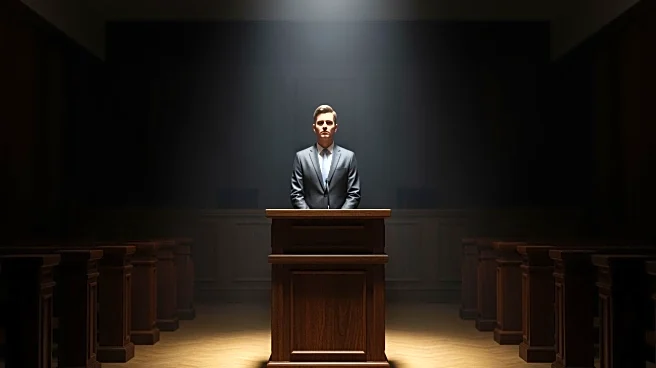What's Happening?
The Northern District of California continues to be a focal point for securities litigation, particularly involving tech companies facing market challenges. Confidential witnesses, often former employees, play a crucial role in these cases by providing
statements that support allegations of fraud. These witnesses are portrayed as insiders with firsthand knowledge, but their statements can be biased or mischaracterized. The Private Securities Litigation Reform Act of 1995 requires detailed allegations before discovery, leading plaintiffs to use confidential witnesses to meet this standard.
Why It's Important?
The use of confidential witnesses in securities litigation highlights the complexities and challenges faced by companies accused of fraud. These witnesses can significantly impact the outcome of cases, as their statements often prevent early dismissal. The reliance on such testimony underscores the need for companies to prepare for litigation by maintaining comprehensive records and addressing potential biases among former employees.
What's Next?
As securities litigation continues, companies may need to adopt proactive strategies to mitigate risks associated with confidential witness testimony. This includes training employees on how to handle unsolicited outreach and preserving records that can counter allegations. The evolving legal landscape may also prompt discussions on the reliability and ethical considerations of using confidential witnesses in court.
Beyond the Headlines
The reliance on confidential witnesses raises ethical questions about the integrity of legal proceedings and the potential for manipulation. It underscores the importance of transparency and accountability in the judicial process, particularly in cases involving significant financial stakes. The situation may lead to calls for reforms in how witness testimony is handled in securities litigation.















